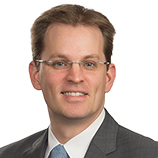Workers’ Compensation Update – Self-Help and Evidence Admissibility
December 18, 2018 by boydjenerette on News
The First DCA recently reversed a JCC order that awarded retroactive authorization of surgery that a claimant obtained from an unauthorized provider. In the case of Hansen & Adkins Auto Transp. v. Martin, No. 1D17-3339 (1st DCA Dec. 10, 2018), the claimant did have an authorized provider who recommended a cervical fusion surgery at multiple levels. The E/C obtained an IME who opined that the claimant's workplace injury was a strain/sprain only and was not the major contributing cause of any condition for which the fusion surgery was recommended. Based on this opinion, the E/C denied the authorized provider’s request for authorization of the recommended surgery.
In his initial petition for benefits, the claimant sought authorization of the cervical fusion surgery recommended by the authorized provider. But before that issue was tried, he went to an unauthorized provider and had a different, less intrusive surgical procedure. The claimant subsequently amended his petition for benefits to include a claim for the surgical procedure that had been performed. Once the claim was tried, the JCC found that the surgery actually performed by the unauthorized self-help provider was sufficiently similar to that recommended by the authorized provider and was medically necessary to treat the compensable injury.
The First DCA agreed with he JCC that the E/C wrongfully denied the fusion surgery that was recommended by the authorized provider. However, the Court reversed the JCC’s finding that the surgery that was actually performed should be retroactively authorized under the self-help provisions. The Court noted that the claimant's burden under the self-help provision of section 440.13(2)(c) and the case of Parodi v. Fla. Contracting Co., 16 So. 3d 958 (Fla. 1st DCA 2009) was to show that surgery he actually received - a different surgery than the authorized provider recommended - was compensable, reasonable, and medically necessary. Significantly, the authorized provider expressly testified that he could not state that this surgery was medically necessary. And the JCC only cited evidence of medical necessity based on the medical records from the self-help provider.
Citing to a prior case won on appeal by Boyd & Jenerette, Miller Elec. Co. v. Oursler, 113 So. 3d 1004 (Fla. 1st DCA 2013), the Court held that the medical opinions of an unauthorized self-help doctor are not admissible unless and until it is established—by other admissible evidence and medical opinions—that the care rendered by the self-help doctor was compensable and medically necessary.
In other words, claimants may not prove the compensability and medical necessity of treatment by unauthorized providers by relying on the opinions of those unauthorized providers alone, as such “bootstrapping” is prohibited under the self-help provisions.
Blake J. Hood
Partner
Direct: 904.493.3757
Email: bhood@boydjen.com

